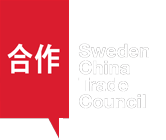Sweden and China have a long history of trade and cooperation. Swedish companies have been operating in China since the 1800s. Today, China is Sweden’s largest trading partner in Asia and trade with China has increased steadily during recent years. In addition to the approximately 10,000 Swedish companies engaged in trade with China, there are about 600 companies with operations on the ground in China.
China is a key and strategic market for many of these companies, housing their largest subsidiaries and suppliers. China is also a high risk country with regards to human and labour rights as they pertain to business, and many Swedish companies face difficult issues and risks on complex markets like China. As businesses, Swedish companies have a responsibility to ensure that their operations comply with Chinese laws and regulations, and a responsibility to respect human rights. There is a growing demand on multinational companies around the world to avoid doing harm and leverage their influence to make a positive impact. It is also in the interest of Swedish companies to be operating on a level playing field with Chinese competitors and business partners.
The past twenty years have seen a dramatic, global economic power shift. China is no longer merely the factory to the world; it is a major global economic player in its own right, with competitive companies operating in all industries and all corners of the world. With China’s increasing overseas investments, sustainability has become a more and more important issue also for Chinese companies. Companies increasingly recognise that responsible business conduct go hand in hand with profitability, by reducing risks to operations, preserving reputation, motivating and retaining employees, obtaining a social licence to operate, and building investor trust.
Launched in 2016, Sweden-China Forum for Sustainable and Responsible Business (SCSB) is a platform for members of Sweden-China Trade Council to discuss current issues, share experiences, and explore possible solutions, good practices, partnerships, and other ways to address common challenges and risks related to doing business with and in China.
SCSB was initated and chaired until 2019 by Malin Oud, formerly Tracktwo and today Head of Stockholm Office, Director of China Office, Head of Economic Globalisation and Human Rights Thematic Area at the Raoul Wallenberg institute.
In early 2020, Théo Jaekel, formerly Director, Business and Human Rights, Ericsson, was assigned new Chairperson of SCSB. Théo left Ericsson in May 2023 and we are now looking for a person with experience in human rights and issues related to sustainable and responsible business to take on the position as Chairperson of SCSB. Are you interested, please contact elisabet.soderstrom@sctc.se to discuss the position further.
All members of Sweden-China Trade Council, both large and SME’s, with a presence in Sweden are welcome to join SCSB.
Topics that will be discussed within SCSB include:
– Linking social and environmental sustainability
– Human rights due diligence
– Stakeholder engagement
– Remedy mechanisms
– Labour rights and collective bargaining
– Responsible global supply chain management
– Migrant workers
– Children’s rights
– Business ethics and anti-corruption
– Identifying and addressing human rights risks in mergers and acquisitions
– Challenges and solutions for small & medium-sized enterprises (SMEs)
SCSB is focusing on the following activities concerning large enterprises:
- Coordination of efforts – creating activities on peer level to open up discussions on overall strategic challenges and questions.
- Activities will be on the highest level of knowledge and experience to meet the expectations of the participants.
- Activities are focused on overall strategic issues with speakers and moderators invited by SCTC, on behalf of the larger corporations, with interesting topics aiming at attracting relevant representatives of the participating companies to secure a high precense over time.
SCSB is focusing on the following activities concerning SME’s:
- Smaller forums facing the concrete needs of SME’s to secure the relevans as well as participation among the members, ie working groups and/or round-table discussions on concrete issues.
- Members are the experts in their respective areas and it’s important that the events organized mirror this in the ambition and commercial relevance.
- If a member identifies a specific issue or challenge that other members experience, SCSB will organize a group of interested members, not competing with each other, to discuss the issue or challenge in question without unwanted information transfer. When the issue or challenge has been solved, the specific group is dissolved.
Contact person SCSB:
Elisabet Söderström, Secretary General, Sweden-China Trade Council
+46 70 388 1788
